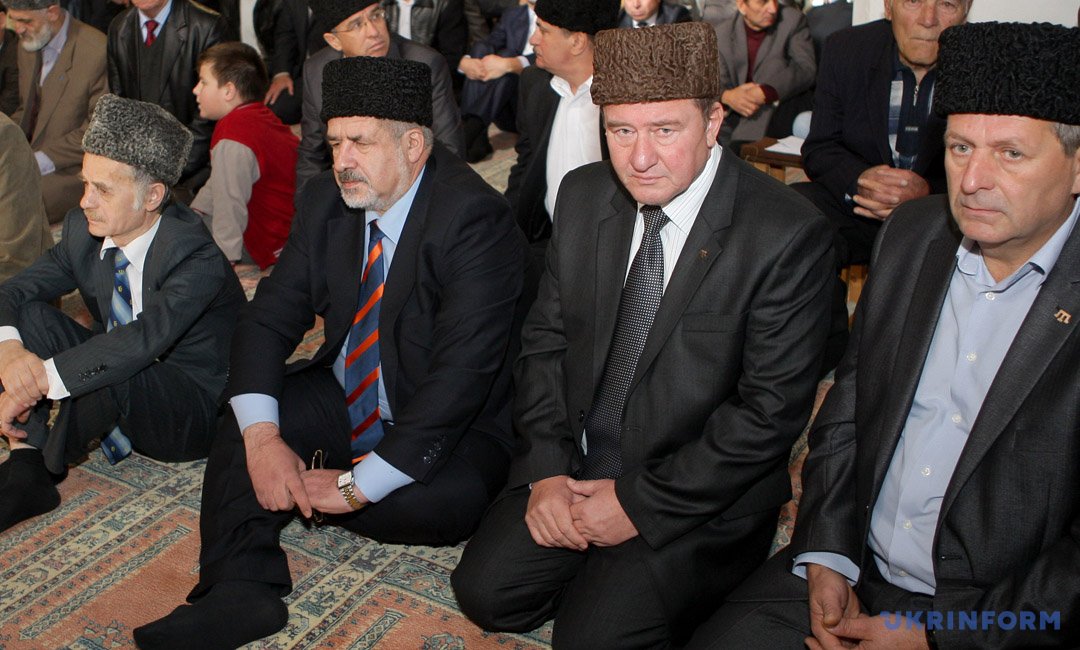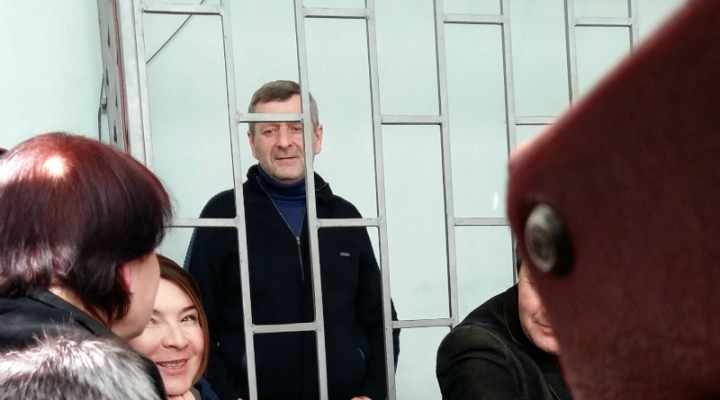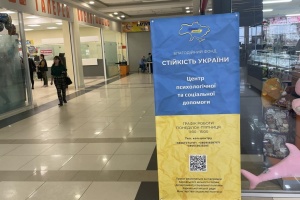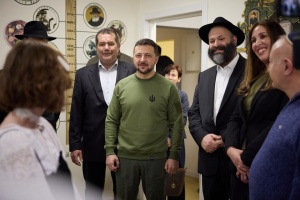
Chiygoz case: Crimean courts as a tool of punishment
Akhtem Chiygoz was arrested in January 2015 for participating in a rally in support of the territorial integrity of Ukraine. The rally was held in front of the building of the Supreme Council of the Autonomous Republic of Crimea on February 26, 2014. On that day, on the eve of the seizure of the peninsula by Russian troops, supporters of the Ukrainian Crimea demanded that local deputies refuse their planned decision to annex Crimea from Ukraine and make it part of Russia.
Deputies, under the pressure of a rally staged by thousands of people, were still wary of voting for Crimea's secession from Ukraine and its "inclusion" in Russia. However, the next morning the buildings of parliament, government, airport and other strategic objects in Crimea were occupied by the Russian military who had no identification signs. "Little green men" with weapons in their hands inspired horror and fear in some residents of Crimea, while bringing joy to others. The Russian government modestly described its military as "polite people," and the Kremlin first denied that these were Russians. The first days and weeks after the capture of the peninsula were the most difficult for those who opposed Russian occupation. Somebody packed their suitcases and left Crimea, but someone openly spoke out against Russia's presence on the peninsula.
With realistic data on the moods in Crimea, rather than information intended for propaganda media, the Kremlin understood that a loud popular protest that was held in Simferopol on February 26, 2014 did not help approve separatist decisions, and most people who shouted at the rally "Crimea is Ukraine" did not accept Crimea's inclusion in Russia.
All that the Russian authorities could do in this situation was to frighten those who did not want to put up with the tragic reality. Therefore, people began to disappear in Crimea almost immediately - their number reached 48 over three years, and the high-profile murder of Reshat Ametov, who staged a one-person picket near the government building in March 2014, is not deliberately investigated, although the faces of those who forced him into a black car and drove away are clearly visible on a video that can be easily found on the Internet. Demonstrative assassinations, disappearances of people, criminal cases are a method of combating dissent that was used by Russia from the first days of the Crimean occupation.
WHY CHIYGOZ?
Akhtem Chiygoz is the head of the regional Mejlis office in Bakhchisaray, a deputy of Bakhchisaray District Council and deputy chairman of the Mejlis of the Crimean Tatar people. He was one of tens of thousands of people in Crimea, who came out to protest against the separatist intentions of the Crimean authorities and thus divert the decision on the Russian status of Crimea. But the charges of violating Part 2, Article 212 of the Russian Criminal Code (organization of mass violations), which foresees imprisonment for up to ten years, were put forward against him.
Perhaps, after Crimean Tatar leader Mustafa Dzhemilev and Mejlis Chairman Refat Chubarov were banned from entering Crimea, all charges were brought against Chiygoz – a Crimean Tatar, pro-Ukrainian politician, representative of the Mejlis, and well-known person among the Crimean Tatars. His lawyer, Nikolai Polozov, said after a "court" session that the documents describing Akhtem Chiygoz included a police certificate stating that he, as leader of the regional Mejlis office in Bakhchisaray, "can gather in a short time a significant number of Crimean Tatars for participation in rallies, processions and pickets."
"It seems that this is the main reason why Akhtem Chiygoz has been in jail for two-and-a-half years - a fear of power before peaceful gatherings of citizens," Polozov said.

According to the lawyer, such demonstrative trials as "the case of Chiygoz" are not designed to find out whether a person is guilty or innocent, but to conduct a political bargain and make sure that demonstrative repressions stop any desire to protest not only in terms of the annexation of Crimea, but even express dissatisfaction with any non-political issues.
ALL ABOUT THE TRIAL
Chiygoz, an opponent of Russia's occupation of Crimea and deputy chairman of the Mejlis of the Crimean Tatar people, has been in custody for more than two and a half years, 955 days. About 150 court sessions were held and over 200 witnesses were questioned in the Chiygoz case. More than 1,000 photos and 100 gigabytes of video were considered in the process. At the beginning of the trial the case itself included 35 volumes of materials and closer to the end their number reached about 40. According to Polozov, while studying the videos, they "did not just watch them completely, but examined every 15-20 seconds, discussing every moment."
DEFENSE TEAM'S VICTORY DESPITE VERDICT
Polozov, at the beginning of his work on the case of Chiygoz, did not count on the acquittal of his client, because all similar trials in Russia ended with real punishment and imprisonment. Nevertheless, the defense team believes that a "court" failed to prove the guilt of Akhtem Chiygoz in organizing mass riots during the rally.
All those questioned, including high-ranking representatives of the occupation authorities – Serhiy Aksionov and Volodymyr Konstantynov, as well as Russian State Duma deputies Sergei Tsekov and Olga Kovitdi, could not reasonably testify against Chiygoz. All that the Crimean "court" managed to collect against him is the testimony of three secret witnesses. The value of testimony of one more witness - Eyvaz Umerov - is also very doubtful, at least because he was not present at the rally. He was a longtime opponent of Chiygoz and a hater of the Mejlis, publicly burning Dzhemilev's scarecrow in Crimea.

However, testimonies showing that Chiygoz called for calm during the rally, on the contrary, were more than enough. All this allows us to conclude that the "court" in Crimea failed to finish the case fast, as numerous videos had to be watched, the claims of lawyers had to be considered, and statements by international institutions had to be taken into account. Chiygoz himself said in his last speech in court that the trial of him represents the trial of all Crimean Tatar people.
* * *
And the last message: Chiygoz, who is accused of organizing mass riots at a rally on February 26, 2014, was sentenced by the so-called "court" in Crimea to eight years in prison.
Ayshe Umerova, the daughter of Crimean Tatar leader Ilmi Umerov, wrote about this on Facebook.
"Eight years," she wrote.
"It was reported from the courtroom that the verdict had already been read out. The 'court' supported the prosecutor and sentenced Akhtem Chiygoz to eight years in prison," Umerova said in a live broadcast.
Serhiy Bobrov, Kyiv.
* * *




